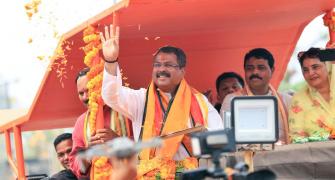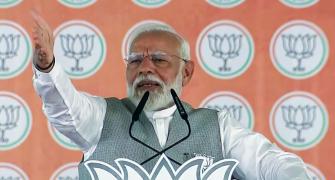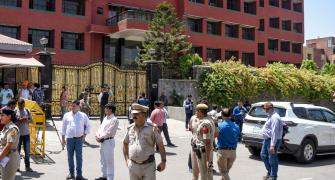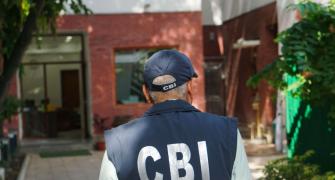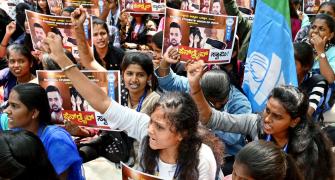After Raj Thackeray's campaign against North Indians in Mumbai, considered the most cosmopolitan city in India, all eyes are on Delhi now. Will this cosmopolitan capital, which witnesses the influx of a large number of migrant workers from other states, also witness an anti-migrant wave?
"There is no way we are going to allow hoodlums to hold our Delhi to ransom, for political or any other reason. What happened in Mumbai cannot and shall not be allowed to be repeated in New Delhi. This is our firm resolve and we shall ensure that not a single person is forced to leave Delhi," Dr Harsh Vardhan, president of the Bhartiya Janata Party's Delhi unit, told rediff.com.
Cutting across party lines, most politicians made it clear that the anti-migrant campaign was an aberration, which should not have taken place in the first place.
However, this is not the first time that workers hailing from Bihar have faced such persecution. They recall how the United Liberation Front of Asom targeted workers from Bihar. They have also been humiliated for being an outsider in states like Punjab and Jammu and Kashmir, where they had migrated to seek work and a better life.
"It was shocking to see the Maharashtra chief minister merely issuing statements and not even bothering to take up the matter with Prime Minister Dr Manmohan Singh and Union Home Minister Shivraj Patil. When Raj Thackery could have been arrested within hours of issuing statements against North Indians and spreading hatred, the Union government waited for an opportune time to swing into action. Television cameras made Raj a hero," observed a senior journalist from Bihar bitterly.
Delhi, with a population of over 15 million, was originally a city of traders concentrated in Chandani Chowk. During the Mughal period, Delhi gave shelter to millions of Punjabi migrants from Pakistan. This hard working community soon started acquiring properties in the city and trading in commodities in which banias refused to invest their money.
"The Mumbai scene cannot be repeated in Delhi because this is a cosmopolitan city where people from all parts of India live. Besides Punjabis, we have Muslims, Christians, Tamil Nadu, Kerala and Andhra Pradesh. You name a state and you will find a sizeable population from that state in Delhi. I am from Jamshedpur, which is now in Jharkhand, but I do not feel threatened," said journalist Rajiv Ranjan Nag.
While baniyas do not inhabit a particular area, certain communities have decided to consolidate their position by living close to each other. Sikhs congregated in the Tilak Nagar area after the 1984 anti-Sikh riots, Biharis and Bangladeshis prefer East Delhi while parts of old Delhi around Jama Masjid is home to many Muslims.
Santosh Mehta, however, has another viewpoint. "The whole thing depends upon the attitude of the government. If it decides to do so, it can ensure that things are under control. The Indian Constitution allows citizens of India to move freely and earn their livelihood. But there is no law to restrict the entry of migrant labourers, and this adds to the difficulty. The government must look into this aspect as well," she said.

